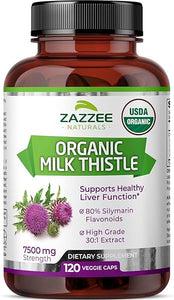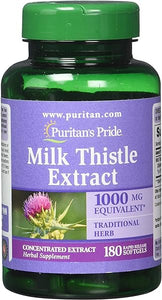The Rising Trend of Milk Thistle Supplements in Pakistan: A Promising Perspective
Introduction:
In recent years, the use of herbal supplements has gained significant popularity worldwide, including in Pakistan. Among these supplements, milk thistle has emerged as a prominent contender, known for its purported health benefits. This article explores the increasing trend of milk thistle supplements in Pakistan, shedding light on its potential advantages, market dynamics, and cultural relevance.
Understanding Milk Thistle:
Milk thistle, scientifically known as Silybum marianum, is a flowering herb native to the Mediterranean region but now cultivated in various parts of the world, including Pakistan. It has a long history of use in traditional medicine, particularly for its liver-protective properties. The active compound in milk thistle, silymarin, is believed to be responsible for its therapeutic effects.
Health Benefits and Uses:
The primary use of milk thistle supplements is to support liver health. Silymarin, the main component, is thought to possess antioxidant and anti-inflammatory properties, which may help protect liver cells from damage caused by toxins, alcohol, and certain medications. Moreover, milk thistle is also purported to aid in digestion, promote skin health, and support overall well-being.
Market Dynamics in Pakistan:
The market for herbal supplements, including milk thistle, has witnessed steady growth in Pakistan. Factors such as increasing health consciousness among consumers, rising prevalence of liver disorders, and growing trust in traditional remedies contribute to this trend. Furthermore, the availability of milk thistle supplements in various forms, including capsules, powders, and extracts, makes it convenient for consumers to incorporate into their daily regimen.
Cultural Relevance and Acceptance:
In Pakistan, where traditional medicine systems like Unani and Ayurveda have deep roots, the acceptance of herbal supplements is relatively high. Milk thistle, with its reputation as a liver tonic, aligns well with the cultural inclination towards natural remedies. Additionally, the endorsement of milk thistle by healthcare professionals and alternative medicine practitioners further bolsters its credibility among the populace.
Challenges and Opportunities:
Despite the growing demand for milk thistle supplements, certain challenges exist in the Pakistani market. Quality control issues, lack of standardized regulations, and misinformation about herbal products pose hurdles to the widespread adoption of milk thistle. However, these challenges also present opportunities for regulatory bodies, manufacturers, and healthcare professionals to collaborate in ensuring the safety, efficacy, and proper usage of milk thistle supplements.
Educational Initiatives and Awareness Campaigns:
To address misconceptions and promote responsible consumption, educational initiatives and awareness campaigns are crucial. Healthcare professionals can play a pivotal role in providing accurate information about milk thistle, its benefits, and potential risks. Furthermore, consumer education programs, media campaigns, and community outreach efforts can empower individuals to make informed choices regarding herbal supplements, including milk thistle.
Future Prospects:
As awareness about the importance of liver health continues to grow in Pakistan, the demand for milk thistle supplements is expected to rise. Moreover, with advancements in research and technology, there is potential for the development of more potent and bioavailable formulations of milk thistle. However, it is imperative to strike a balance between innovation and tradition, ensuring that the essence of this ancient remedy is preserved while meeting the evolving needs of modern consumers.
Conclusion:
The increasing popularity of milk thistle supplements in Pakistan reflects a broader global trend towards natural remedies and holistic approaches to health. With its purported liver-protective properties and cultural relevance, milk thistle holds promise as a valuable supplement in promoting overall well-being. However, concerted efforts are needed to address regulatory challenges, enhance quality standards, and foster greater awareness among consumers and healthcare professionals. By harnessing the potential of milk thistle responsibly, Pakistan can embrace a healthier future rooted in tradition and innovation.










